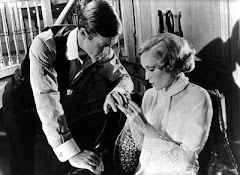
In The Great Gatsby there are two cities separated by The Valley of Ashes, East Egg & West Egg. The author, Fitzgerald, uses these two cities to represent two classes of wealth (old wealth and new wealth). You can tell what kind of people live in what city. The people in East Egg, such as
 the Buchanans, have come from families who have always had money; they have been well educated at Ivy League colleges such as Yale. Those in West Egg, on the other hand, like Gatsby, are new to great wealth. They don't come from wealthy backgrounds; rather, they have made their own fortunes. Gatsby has had family that was wealthy, but all of his family passed so that is where his money comes from. Instead of Ivy League college degrees, people in West Egg are more likely to have work experience gained while they made their money, like Nick Carraway.
the Buchanans, have come from families who have always had money; they have been well educated at Ivy League colleges such as Yale. Those in West Egg, on the other hand, like Gatsby, are new to great wealth. They don't come from wealthy backgrounds; rather, they have made their own fortunes. Gatsby has had family that was wealthy, but all of his family passed so that is where his money comes from. Instead of Ivy League college degrees, people in West Egg are more likely to have work experience gained while they made their money, like Nick Carraway.Nick Carraway, a native of the Midwest, lives in West Egg, but instead of buying an extravagant house like Gatsby, he get a small cottage. Nick is more like those in East Egg because of his background, but he chooses to live in West Egg because he's trying to make it in the bond business a
 nd doesn't have much money of his own. The East Egg citizens are portrayed as corrupt and mean while those in West Egg are seen are less sophisticated, and more innocent. Sadly, the residents of East Egg are consumed with material things because money has run their lives since birth. Thankfully, for those residents in West Egg, have more morals and are less absorbed in their wealth. Fitzgerald mentioned in the text that West Egg was 'less fashionable', I don't see this to be a bad thing. Like previously stated they are not wrapped up in their money, and only focusing on material things such as clothes.
nd doesn't have much money of his own. The East Egg citizens are portrayed as corrupt and mean while those in West Egg are seen are less sophisticated, and more innocent. Sadly, the residents of East Egg are consumed with material things because money has run their lives since birth. Thankfully, for those residents in West Egg, have more morals and are less absorbed in their wealth. Fitzgerald mentioned in the text that West Egg was 'less fashionable', I don't see this to be a bad thing. Like previously stated they are not wrapped up in their money, and only focusing on material things such as clothes.Fitzgerald portrays the 1920s as an era of decayed social and moral values, evidenced in its overarching cynicism, greed, and empty pursuit of pleasure. Alas, this again results in the cash hounds that inhabit East Egg. East is more about that social standards and values, and West is more about morals. (http://www.sparknotes
 .com/lit/gatsby/section3.rhtml) The West is described as the country of “wide lawns and friendly trees” (p.7,5 ), “prairies” and “lost Swede towns” (p.125,19). East Egg represents the old aristocracy, West Egg the newly rich, the valley of ashes the moral and social decay of America, and New York City the uninhibited, amoral quest for money and pleasure. (http://www.chacha.com/question/what-are-the-major-differences-between-east-egg-and-west-egg-in-the-book-the-great-gatsby)
.com/lit/gatsby/section3.rhtml) The West is described as the country of “wide lawns and friendly trees” (p.7,5 ), “prairies” and “lost Swede towns” (p.125,19). East Egg represents the old aristocracy, West Egg the newly rich, the valley of ashes the moral and social decay of America, and New York City the uninhibited, amoral quest for money and pleasure. (http://www.chacha.com/question/what-are-the-major-differences-between-east-egg-and-west-egg-in-the-book-the-great-gatsby)-It's Gatsby Baby














Another great post. Keep up the great work! 75/75
ReplyDeleteMs. Donahue
*roaring 20's
ReplyDeleteGatsby didn't inherit any money from his family. His family were poor and he ran away at a young age to make his own fortune. Also inhabitants of both West Egg and East Egg were obsessed with money. Just because those in East Egg were perhaps more sophisticated didn't mean they didn't place a lot of emphasis on fortune; Daisy Buchanan herself couldn't marry Gatsby, her true love, after he told her he was 'penniless'. The majority of the rich at that time were corrupt and shallow, regardless of whether their wealth was new or old money.
ReplyDeleteyes gatsby's family was poor, he was supposed to inherit Dan Cody's money but he didn't. Gatsby just like others in west egg, worked for his money.
ReplyDelete